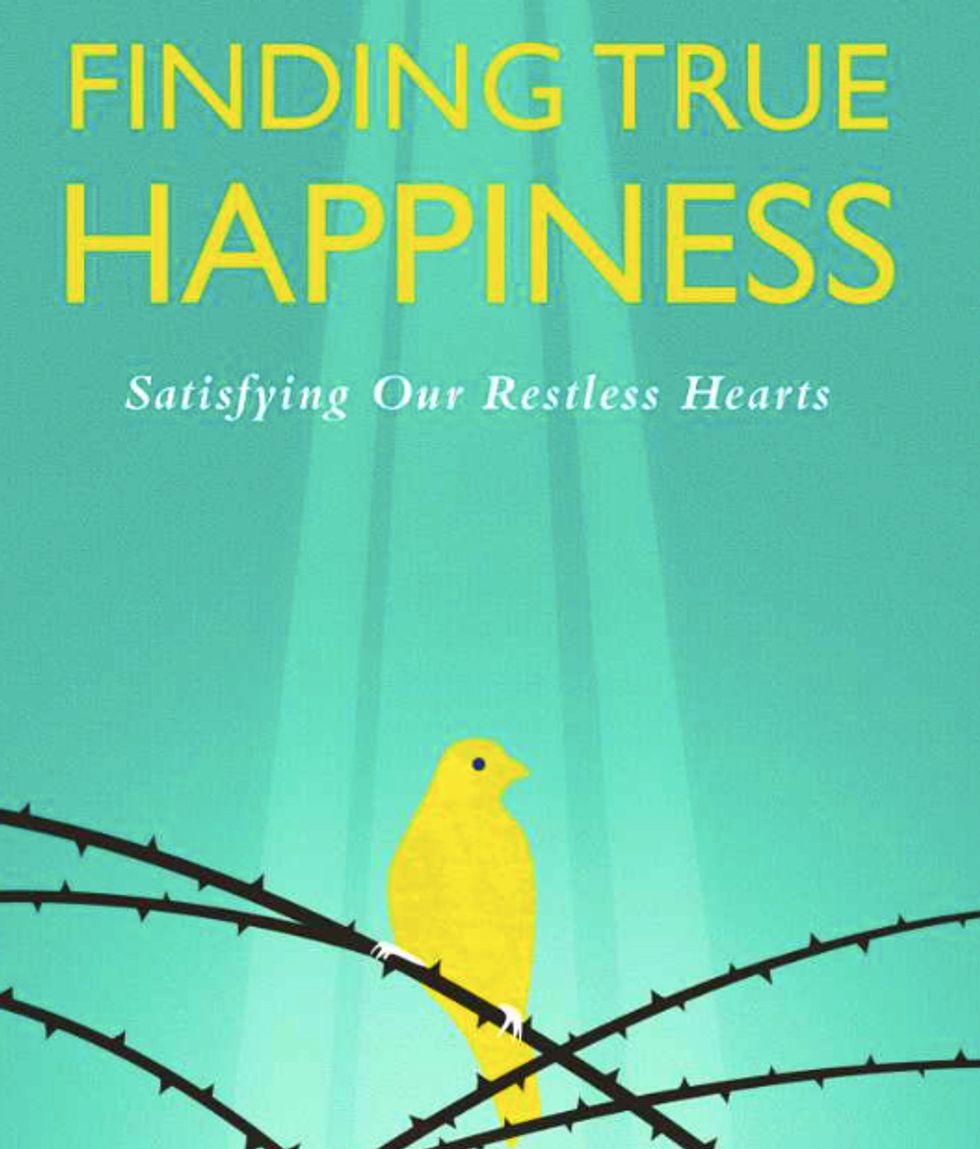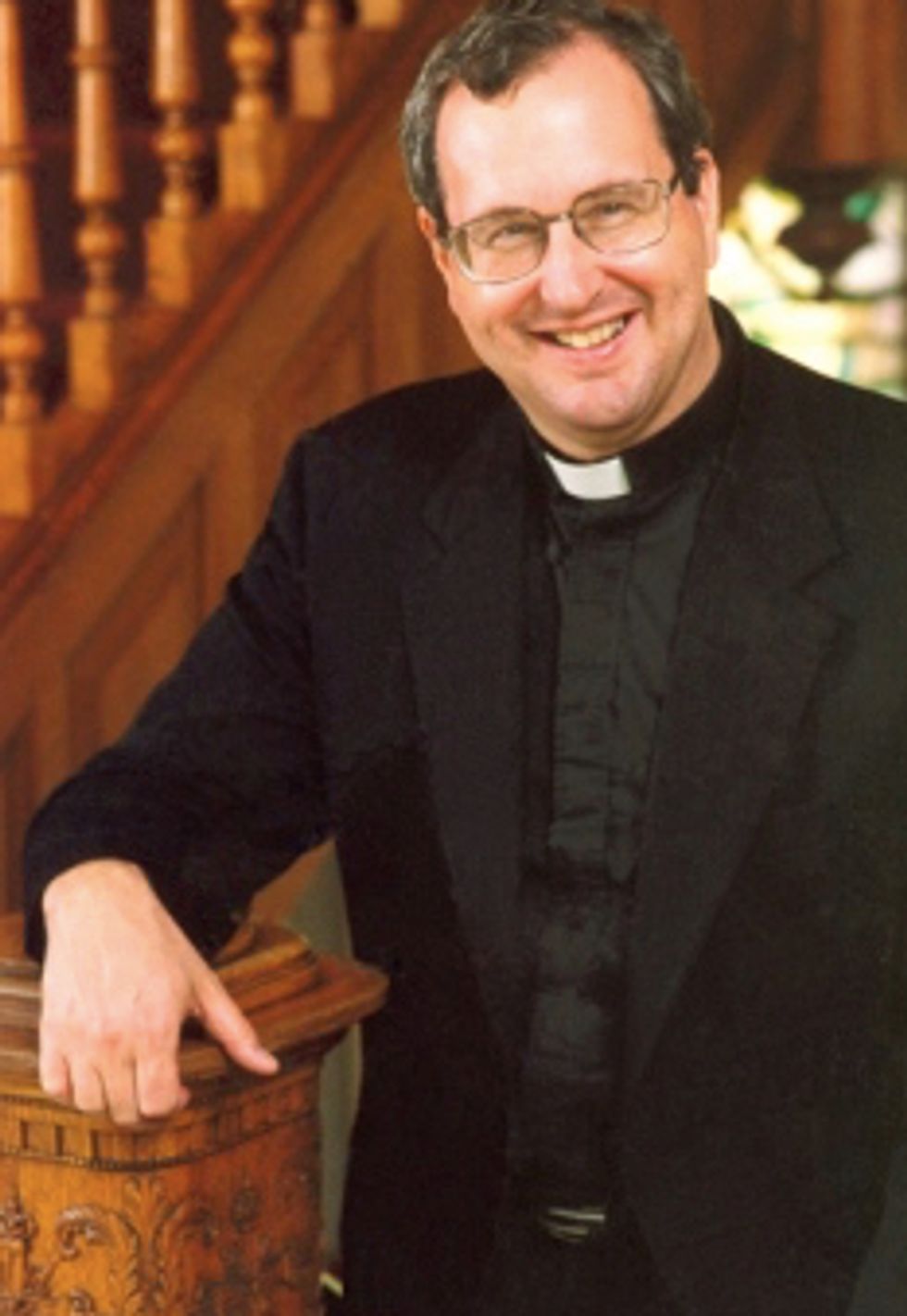
© 2026 Blaze Media LLC. All rights reserved.
Philosopher Warns of Major Cultural 'Implosion' If Society Refuses to Fix This Key Problem
June 12, 2015
"Let's not leave the culture in misery."
Father Robert Spitzer, a Catholic priest, philosopher, author and academic who recently mapped out the four levels of happiness that he says are available to mankind, is warning that contemporary society is on a dangerous trajectory that will potentially lead to a cultural "implosion."

Spitzer, author of the new book, "Finding True Happiness," has been on a journey to explore a multitude of psychological, philosophical and theological theories about human happiness, telling TheBlaze in an interview this week that it's essential for people to consider his conclusions.
"We have four fundamental set of desires in us," he explained, describing the first two levels of happiness as being too focused on the self. "No good end will ever come from level one and level two happiness, if those are the two things that really matter to us."
The first of these desires is physical in nature and is what Spitzer calls "external material happiness" — a form of contentedness that people experience from eating a delicious bowl of pasta, or from acquiring material possessions.
"There's a perfectly legitimate form of level one happiness that we all need," Spitzer said. "Every once in a while a guy ought to have a good bowl of linguine."
But Spitzer said that problems emerge when people get stuck at level one happiness, where they assume that these material possessions and immediate gratifications are all that there is to finding success and joy. It is then that the priest said that "significant problems will emerge."
"It's not enough," Spitzer said. "You've got these other desires in you."
As for the second level of happiness, Spitzer said that it involves self-awareness — something that differentiates human beings from animals.
"We can actually be aware of being aware of our awareness, because of that we create our own inner world, inner universe. You juxtapose it to the outer universe," he said. "You want the locus of control to be in you, not outside, so you want to be better ... we'd like to be smarter or we'd like to be more athletic."
It's at this phase — one that involves the ego — that people begin to compare themselves to others, competing and finding worth in trumping their peers. It's something that Spitzer said can "become an end of itself" — and he believes that it's rampant in the current culture.
"About 70 percent of our young people will be ego comparative dominance by the time they finish high school," he said. "If they're not on top, the feelings of inferiority, judgement, despair [take root], but the winners are no better off. They can never let their true selves be exposed."
If one ends up stuck at this happiness phase, Spitzer said that he or she isn't considering, 'What does God think of me?'"
It's when one ends up in the third and fourth level, though, that the paradigm shifts quite a bit, Spitzer said, calling the third phase "contributive" and referring to the fourth as "transcendence."
"We have two other remarkable capacities — empathy and conscience, and they combine up with self-consciousness. An orientation away from the self," Spitzer said. "Self-consciousness left to itself really only creates ego-comparative ... level two combined with empathy and conscience all of the sudden wants to move beyond itself."
It is empathy and personal connections that Spitzer said help connect human beings and create a paradigm in which one finds happiness and value in doing for others. He said that conscience, like empathy, is a God-given gift that allows for people to find a sense of perfection and worth when they do something good, honest or noble.
"We can be guided in our minds by this remarkable power. Once I'm listening to my conscience, I'm concerned about others," Spitzer said. "When you take empathy and conscience and you blend them in with self-consciousness, you get this contributive desire ... to make a difference in the world before you die."

The fourth and final level of happiness is what Spitzer calls "transcendence," which involves a belief in God — and, in particular, Jesus Christ. The priest said that it is essential to help people get to the third or fourth level of happiness, or else there are personal consequences.
"We better help people get to level three and level four, because if we don't, they'll never find true happiness," he said. "Second, we're going to let them wallow in inferiority, self-alienation, ego rage, ego blame. ... let's not leave the culture in misery."
Getting to transcendence, Spitzer said, involves people "awakening ... to the eternity to which they're called." Considering that this fourth phase deals with a belief in a higher power, the priest also addressed whether it's possible for an atheist to find true and perfect happiness.
"Without qualification, no," Spitzer responded. "You can get absolutely to a very high level three, but if you denied God altogether, I don't see how you could get there. When you deny any aspect of level four, you're basically denying the transcendent."
He said that denying a higher power would mean denying perfect justice, truth, love and beauty — but that's not all.
"It's a denial not just of God, it's a denial of transcendence. You deny transcendent fulfillment," he said, noting that he believes God has placed a desire in everyone's heart to seek him out. "We are desperately in need of being in contact with God. God has been in contact with people since the beginning."
Spitzer said that he crafted the four levels of happiness after researching 100 thinkers, ranging from Plato to St. Thomas Aquinas, to analyze how they examined personal happiness. In the end, he noticed similarities that helped inform his thinking.
The priest concluded his interview with TheBlaze with a warning: "I think if the culture stays in level one and level two ... it will destroy the individuals within it, it will destroy relationships, it will destroy the family," he said. "If all that goes, the culture will implode on itself and it will be no different than the Roman Empire.'
Find out more about "Finding True Happiness" here.
--
Front page image via Shutterstock.com.
Want to leave a tip?
We answer to you. Help keep our content free of advertisers and big tech censorship by leaving a tip today.
Want to join the conversation?
Already a subscriber?
Billy Hallowell is a digital TV host and interviewer for Faithwire and CBN News and the co-host of CBN’s "Quick Start Podcast."
Billy Hallowell
Billy Hallowell is a digital TV host and interviewer for Faithwire and CBN News and the co-host of CBN’s "Quick Start Podcast."
more stories
Sign up for the Blaze newsletter
By signing up, you agree to our Privacy Policy and Terms of Use, and agree to receive content that may sometimes include advertisements. You may opt out at any time.
Related Content
© 2026 Blaze Media LLC. All rights reserved.
Get the stories that matter most delivered directly to your inbox.
By signing up, you agree to our Privacy Policy and Terms of Use, and agree to receive content that may sometimes include advertisements. You may opt out at any time.






